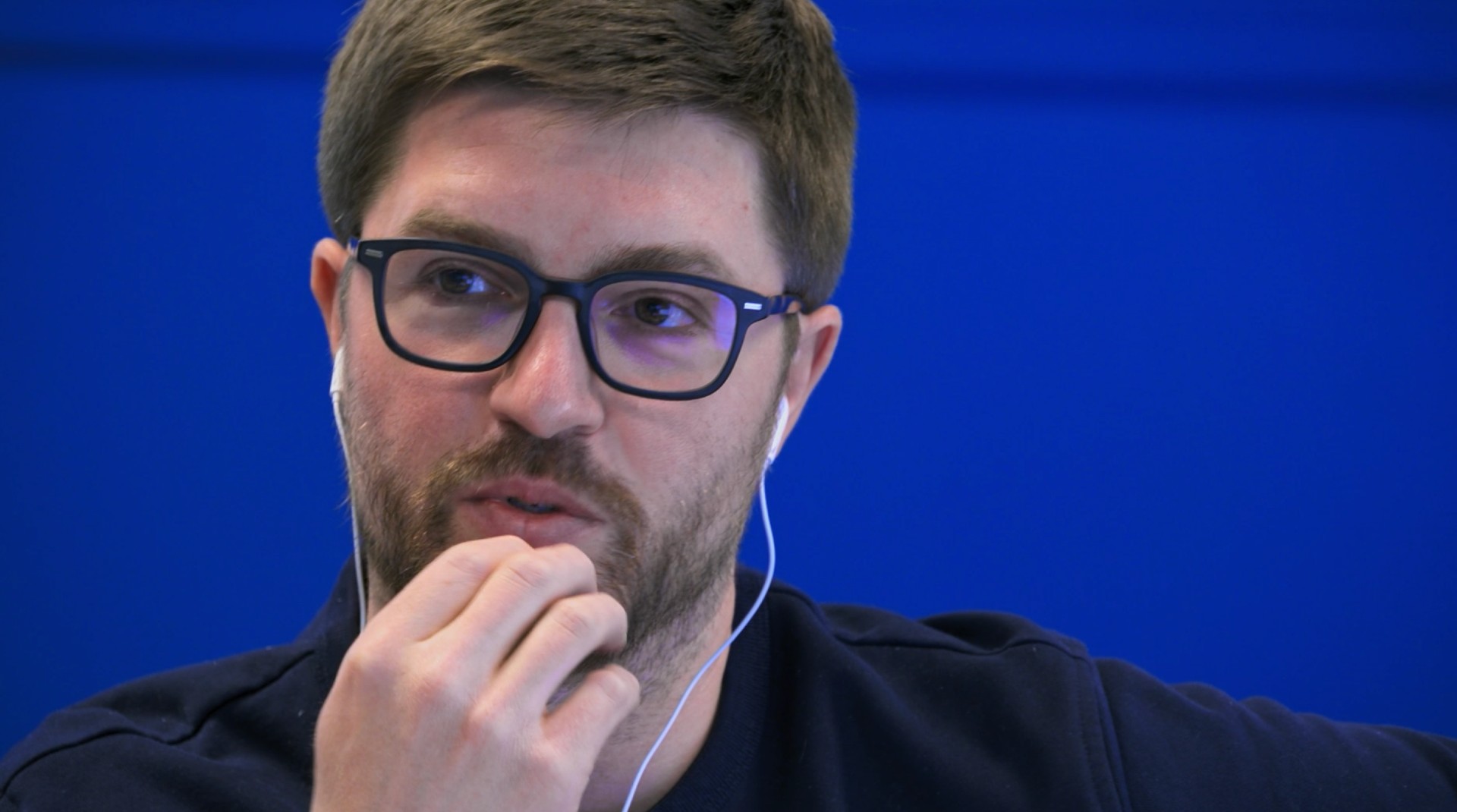Halfway through preseason, Kyle Dubas joined TSN Overdrive to discuss the Amazon Prime All-or-Nothing documentary series, the contract extension for Sheldon Keefe, the criticism Mitch Marner received this offseason, and the new additions among the forward group.
What did you make of the final cuts with the Amazon All-or-Nothing series?
Dubas: I haven’t watched the final version of it. We saw a bunch of different iterations throughout the summer, but I actually haven’t seen the final version. Everyone can nitpick and such, but I think it provides a really unprecedented view into the way that teams operate and the way that our team operated, and the different things we went through throughout a really unique season last year.
For fans of our team or people who are the opposite of that, I think it provides a lot of insights. It is interesting, whether you are a sports fan or not.
Were you okay with the timing of it coming out at the start of this season?? Wouldn’t you want it out earlier and start fresh as opposed to digging up what happened last year and dealing with it all over again?
Dubas: I don’t get the sense that the release of it now has provided any sort of distraction for our group. I can only speak for myself, Sheldon, and the players. It brings it all up again for our fan base and hockey fans who are going to watch the show, but there is nothing we can do about that anymore.
We are far too focused on the day-to-day. For the players, they have been really hard days. Our focus has to be on what we are doing in camp systematically and the decisions we have to make with the roster. There is not a whole lot of time.
That is the major reason why I haven’t watched it. It has been available to us, but the focus is very clearly on this year here and making sure that we put ourselves into a good position heading into the season in order to have the best year we can.
Going through all of it with the mics and cameras, how comfortable were you throughout the whole season?
Dubas: At the beginning, it was a big adjustment. The cameras in my office, in the locker room, and in the coach’s office — both at the Ford Performance Center and here — were stationary. As time went on, everybody got used to it. I don’t think they really impacted anybody in terms of the business you were doing.
It was very different to be filmed all the time in those spots. It is something that we will never have happen again because I think the show was a very unique, one-time thing. As you got into month three, four, or five of the season, it just became part of the furniture, really.
The camera folks and the sound folks on the show were outstanding just in terms of their ability to read situations, when they should back off, and when they should be around. I didn’t really feel, especially as it went on, that it was any different. The players and Sheldon may have a different read on that, but for me, I just got used to what was all around and you are able to just sort of go on with your business.
Did you have any instances where you said something, and you had to grab the camera guy and say, “I need the tape back from that, please?”
Dubas: I think they probably have a lot on the cutting room floor that is not overly appropriate — different meetings with different people, our scouts, or different players that weren’t very interesting or probably stuff that wouldn’t necessarily fit, be it the language or other factors like that. That is par for the course with shows like that, I guess. We have never been a part of one before, but I certainly understand what you are alluding to.
What do you want the fans to take out of the process with the documentary? We know how the season played out. What are you hoping the fans take from it in terms of positives or negatives?
Dubas: I hope that anyone who watches it takes out how much our players care, how much they put into it, and the level of devastation that they had after the playoff series against Montreal. I think everyone can get up in front of the camera a few days later and say that they are unhappy and disappointed, but those moments that happen in the locker room after the season ends are not really shown very often. This is a unique look at that. It shows the level of disappointment our players had in themselves and in the group.
Every team, except for one, every year, is going to have those moments unless you miss the playoffs and you’re on your way. All but one team experiences their season end without winning. For people to be able to have a look at that in the locker room in the days after or the day after, and see the impact it had, particularly on our players…
I think they get a bit of a bad rap at times for how much they truly care. I think that is something that would stick with me if I wasn’t involved with the team and was watching from afar. That would be of note to me.
Why do you think they get a bad rap? Are there any players, in particular, that you think get a bad rap for coming off as not caring as much as they do?
Dubas: I can only base it on the questions that I get about certain players on our team in different media sessions. I think our guys do care deeply about the team. They care deeply about winning. We have a young group of players who are uniquely talented and some of the best players in the league. We haven’t had that team success yet. At times, it leads to people questioning whether that is really important to them.
I think the documentary shows that winning is very, very important to them just based on their level of emotion, how much they put into being at their best for the team, how disappointed they are, and how devastated they are when they don’t reach that level.

There is one guy in particular who has been at the forefront of that this summer in Mitch Marner. You have probably picked up on that. How do you respond to the criticism, heat, and whipping-boy stature he has found himself in this offseason in some corners of the fan base and media?
Dubas: Whenever a team doesn’t reach its potential, whether it is the GM, the coach, or specific players, there is going to be a unifying person people get behind. If it is scattered around, it usually kind of peters out and dies. Usually, what happens when a team is disappointing, one person or a group of very few people becomes the subject of a lot of the scorn.
As we have said here a lot, it is disappointing for me that Mitch has received a lot of that because he is an extremely talented player… You can look at it and say his production in the playoffs died off, and that happened to a lot of our guys on our team. That is sometimes what happens in the playoffs. We had seven games last year, so there wasn’t any more time than that to continue to build momentum, to have things turn and go differently.
With Mitch, one of the reasons why it is disappointing for me is that he doesn’t have to produce solely to have a huge impact for us. He is an excellent penalty killer. He brings a tremendous amount of energy to our team every day and can have a positive impact on the game without scoring. All of that said, he does score at a very high level and has been one of the best scorers in the league in the regular season over the last number of years.
In the first or second season with the group against Boston, he had a very good playoff then. I think Mitch cares very deeply about the team. I hate to see him be the person that gets criticized because of how much he cares, how much he puts into it, and what he brings to our team even when he is not scoring.
As we continue to build more opportunities, it is another chance for him to change that story. I know that he will.
Sheldon Keefe received an extension. How did you balance having the coach that the players seem to enjoy playing for, and yet there hasn’t been playoff success? He is still your guy and the players’ guy that they want behind the bench.
Dubas: The two seasons have been very challenging. He took over in 2019. Our team was not in a good place at that time. He got the team back on track very quickly. He took over late November, and by Christmas or into the New Year, we had really found our stride and were playing to the level we could. We had a lot of injuries, particularly on our backend, at that time, and we still managed to keep everything rolling.
There were various ups and downs that everybody knows about through February and early March that year, and he sort of steadied the group and got us moving in the right direction.
Last season, we had a very good regular season. Going back to the documentary, in the parts that I have seen from the earlier iterations of it, I think it shows — and I know — that the players really respect and play for him. He is also quite hard on the players and very direct with the players — all of them, not just the ones in depth roles that are a little bit easier to be hard on, but everybody and challenging them very directly.
As we go into this year, it was important for our organization and for me to realize that he has had excellent success in the two regular seasons that he has been the coach. The thing that I know about Sheldon, from working with him in the Soo and with the Marlies, is that whenever there is a big disappointment that we encounter, it always brings out the best in him as a coach.
Certainly, we had that disappointment last year in the playoffs, but we can’t overlook the success he has had and the improvements that the team has made, knowing that he is a person who thrives in situations like this where disappointment has occurred — devastating disappointment, you might say. He’ll be able to build a way for the group as a whole to be better this year and build out from that in a more positive fashion.
It is important to have that done so that he has that security. We are able to know this is the course we are going to chart for the next several years.
After their disappointment against Columbus, the coaches and players in Tampa figured out they needed to change the way they played with their approach. Is there any of that needed for the Maple Leafs? Do they have to go back at it the way they are playing and just give it another crack?
Dubas: I think Tampa still has their core tenets in the way that they play. Studying them, watching them, and trying to learn from them — or any team that has had disappointment and then went on to have success in any sport — it is about keeping those core tenets there while adapting, improving, and asking yourself why it didn’t work.
Our players have been very open and direct with one another during the offseason about why we haven’t had success in the playoffs, what their role is within it, and how they can continue to improve. I don’t look at this season at all as us just running back the exact same system and the exact same group of personnel. Whenever you fall short of your goal, you have to adapt and change.
We have a certain number of beliefs that are kind of the core foundation of the group. Over the years, we have attempted to alter the construction of the roster and attempted to improve in various defensive metrics especially, which we think are vital to eventually having playoff success.
From our vantage point, every time you don’t reach expectations, you have to ask very difficult questions of yourself, management, coaching, and players, and adapt to find a way to get there. If it was just purely a luck thing or a few bounces, you would say, “Maybe we’ll try to go again,” but in our case, I think it was much more than that. You have to adapt and you have to keep a few core beliefs in how you want to do things in order to maintain stability, but you always have to challenge and improve in whatever area that you can.
After losing Zach Hyman, you have two spots open on the top two lines on the left side. You brought in the likes of Kase, Bunting, and Ritchie. Can you take us through your mindset with these three players? Were you picturing a fit with Auston Matthews and Mitch Marner or John Tavares and William Nylander, or was it more about liking these players and finding a spot for them?
Dubas: Zach had a great run here. He is obviously a great player. He was excellent no matter where you put him in our lineup. Losing a player like that, there wasn’t really one readymade, direct replacement. Rarely is that ever the case when a player departs in free agency.
The question was: Do we try to find one player who is most like him, or do we want to try to continue to give our team and coaching staff as many options as possible? Particularly on the wings, we were losing Zach. We had Joe Thornton departing as well.
I think we just wanted to give the group as many different looks as possible while finding certain traits that we thought would be more important as we went into this season trying to have more success in the postseason.
You are trying to manage, be organized, make sure everyone is in their rights spots, and shift them around if need be. That is where the focus really falls now in trying to test out the versatility of all of these players, put them in different spots in camp, and see where they are at.
On defense, the top four are back, Travis Dermott is back, and Rasmus Sandin looks really comfortable in camp so far. What have you seen out of camp or behind the scenes that leads you to believe he is prepared to play every night in the NHL this year?
Dubas: One good part of camp and positive for us is that Timothy Liljegren and Rasmus have both shown really well early on. Certainly, we had the five returning guys — Morgan, TJ Brodie, Jake Muzzin, Justin Holl, and Travis Dermott — and we just felt it was time to create a clear opportunity for Rasmus and Timothy Liljegren.
We have been very, very happy with Rasmus. Especially in his second exhibition game, his ability to move the puck, see plays, and execute… Last year, he asserted himself a little more physically, and he is not the biggest guy, but he can certainly surprise you with his strength. Timothy, through two exhibition games, continues to come along as well.
We are very happy with both. That will be a really good competition here throughout the next week and a half of camp.

































